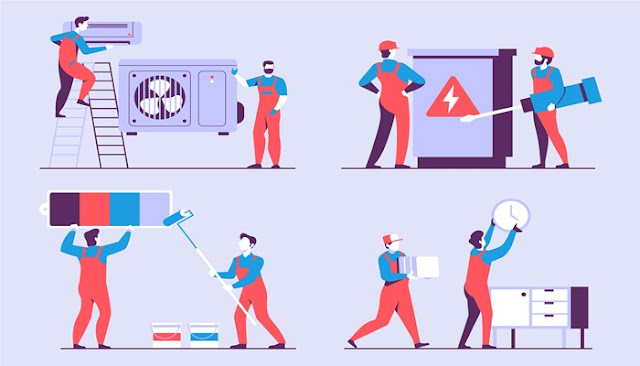When creating a desirable and productive work environment, one way businesses can achieve this is through using heating, ventilation, and air conditioning (HVAC) systems. This way, businesses can better ensure a worker’s health and safety while on the job. In this article, we take a look at the benefits of implementing HVAC systems in the workplace, and what thermal management entails. Make sure to keep reading below to learn more.
What is HVAC?
HVAC is an acronym that stands for Heating, Ventilation, and Air Conditioning. More specifically, this refers to a system and all its components that are required to control the quality and temperature of the air within a vehicle or building.
What are the main components of an HVAC system?
There are a few main components that help make up an HVAC system. These include the use of boilers, heat pumps, radiators, and other heating elements.
When it comes to cooling, a key component remains air conditioning. This uses contraction and expansion to help lower the temperature.
Ventilation, on the other hand, comes through the use of fans, filters, and ducting in order to move air around the building and exchange it with outside air.
What does thermal management entail?
A thermal management system generally uses either passive or active methods to keep equipment, electronics, machinery, batteries, and other devices within a specific temperature range. Passive methods usually attach to the device and work through natural convection, conduction, or radiation. These include things such as cold plates, heat pipes, and heat sinks, to name a few. On the other hand, active methods use another device to speed up the cooling or heating such as a fan or a pump.
When it comes to electronic design, thermal management remains a key element. This is because keeping electronic components cool is a key consideration since overheating is one of the primary causes of malfunction of modern devices.
Why is HVAC important in the workplace?
There are plenty of reasons why HVAC plays an important role in the workplace. We have listed some of their benefits below for your perusal.
→ Improved air quality
HVAC systems help to filter and circulate indoor air, which removes allergens, dust and other contaminants. This results in better indoor air quality, and reduces the risk of respiratory issues and allergies among the workforce.
→ Temperature control
HVAC systems help to maintain a comfortable indoor temperature year-round. For instance, in the winter, they provide warmth, while in the summer, they help to offer cooling to workers. This temperature control makes sure that employees can work comfortably, which can boost job satisfaction and production in the long run.
→ Regulating humidity
HVAC systems can control indoor humidity levels, which prevents excess moisture that can lead to mould discomfort and growth. Proper humidity levels can contribute to a healthier and more comfortable work environment.
→ Health and wellbeing
Maintaining a consistent and comfortable temperature along with good air quality can contribute to the overall health and well-being of employees. It therefore reduces the likelihood of heat-related illnesses in hot weather and minimises exposure to cold temperatures in the winter.
→ Compliance
In some industries, specific temperature and humidity levels are required to meet regulatory standards. HVAC systems can ensure compliance with these regulations, thereby allowing the business to avoid potential penalties or fines.
→ Productivity
Comfortable employees are typically more productive in the long run. When the workplace temperature is well-regulated, employees can instead focus on their tasks without the distraction of extreme heat or cold temperatures.
→ Energy efficiency
Modern HVAC systems are designed to be energy efficient. They use advanced technologies to optimise heating and cooling, which can lead to cost savings on energy bills and reduce the company’s carbon footprint.
→ Customer experience
For businesses that have customer-facing operations, a comfortable environment created by HVAC systems can enhance the overall customer experience. It can also lead to repeat customers and business in the long term, thereby enhancing customer loyalty.
→ Safety
There is no doubt that proper ventilation is essential for the removal of pollutants and harmful gases. HVAC systems help to create a safer workplace by ensuring good air circulation. This can lead to fewer workplace injuries and absenteeism in the long term, as well as boost productivity and employee morale.
→ Employee retention
A comfortable and well-maintained workspace tends to be more attractive to employees. This can contribute to higher job satisfaction, lower turnover rates, and a positive company culture.
→ Equipment and data protection
HVAC systems help maintain the appropriate temperature and humidity levels for sensitive equipment and data centres. This prevents overheating and damage to expensive machinery and electronics.
Bottom line
Overall, HVAC systems are vital for maintaining a comfortable, productive, and safe workplace. They contribute to employee's well-being, energy efficiency, compliance with regulations, and the overall success of businesses across different industries. Properly maintained and designed HVAC systems are great investments in the health, productivity, and longevity of both the organisation and employees as well.

No comments:
Post a Comment